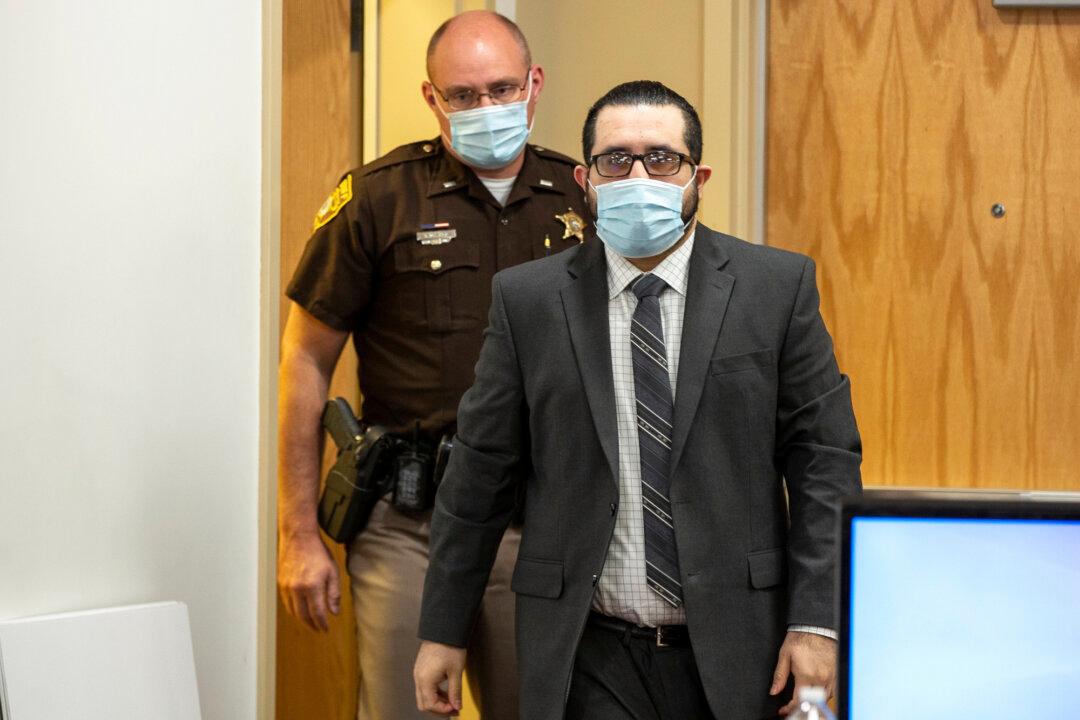CONCORD, N.H.—A jury on Thursday convicted a New Hampshire man of first-degree murder for killing his wife’s coworker after he discovered they were texting, and then forcing her to behead him.
Armando Barron, 32, faces a life sentence without parole. He also was convicted of assaulting his wife, Britany Barron, the night he discovered she had been texting with her coworker, 25-year-old Jonathan Amerault. Prosecutors said he used her cellphone to lure him to a park just north of the Massachusetts state line in September 2020. Barron also was convicted of beating and kicking Amerault, forcing him into his own car and shooting him.





